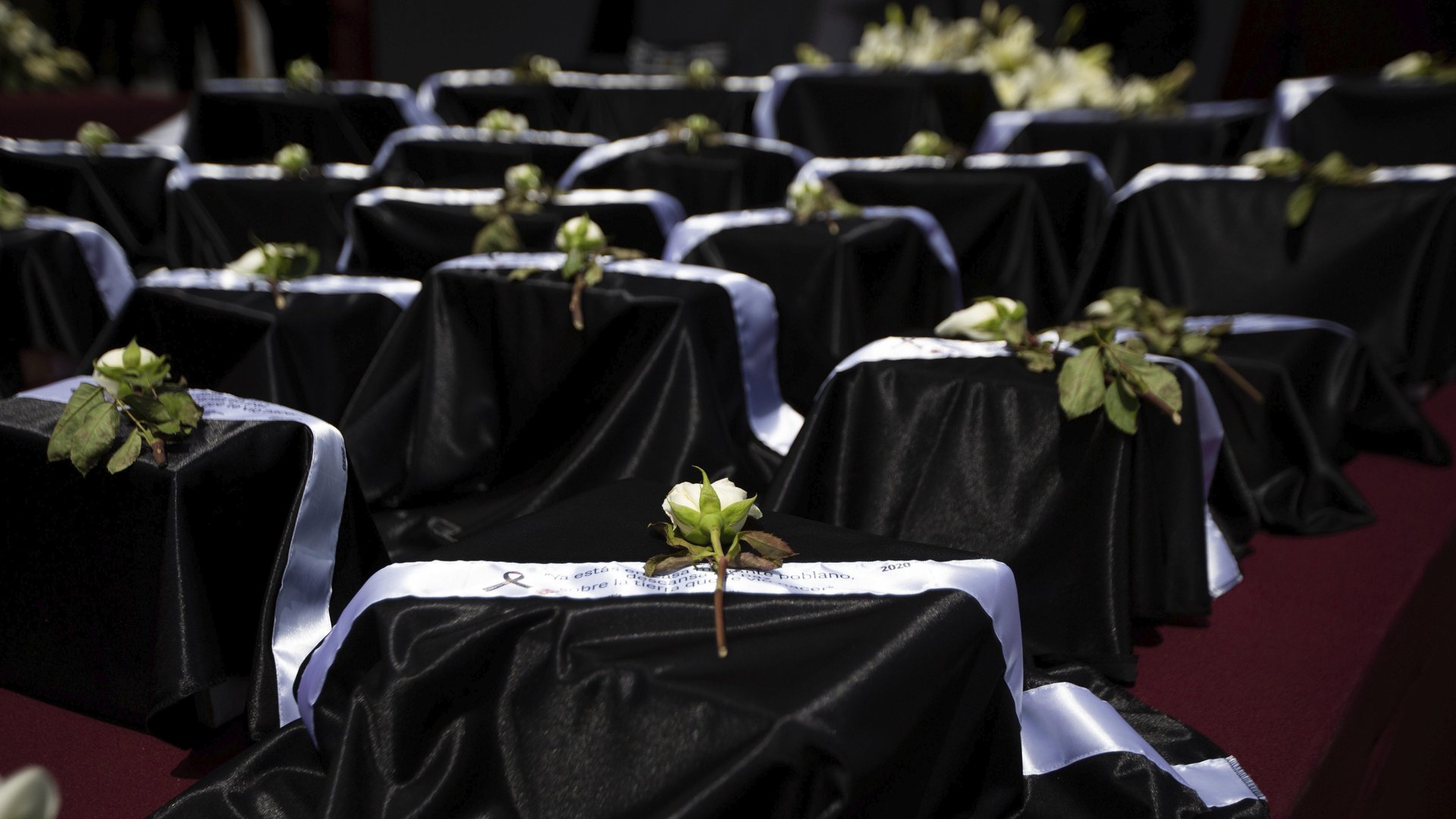Covid-19 has accelerated the trend toward cremation over burial
In the United States, over 130,000 lives have been lost to Covid-19. Due to restrictions on large gatherings, the families and loved ones of many of those victims haven’t been able to safely gather to celebrate their lives. But the funeral home industry, like all businesses these days, has adapted accordingly.


In the United States, over 130,000 lives have been lost to Covid-19. Due to restrictions on large gatherings, the families and loved ones of many of those victims haven’t been able to safely gather to celebrate their lives. But the funeral home industry, like all businesses these days, has adapted accordingly.
Instead of traveling to be together, lot of funerals services are now remote, taking place over Zoom. And the handling of bodies has evolved, too: “We have seen an increase in cremation instead of burials since Covid happened,” says Dutch Nie, a spokesperson for the National Funeral Directors Association.
Cremations offer a way to say goodbye to loved ones during the pandemic while adhering to social distancing and travel precautions. But as Nie notes, this uptick isn’t strictly a reflection of the pandemic: It falls in line with a trend that began in 2015, and will likely continue.
Cremation involves either burning a body at high temperatures until it becomes ash, or, in a less popular option, chemically disintegrating it through a process called alkaline hydrolysis. Unless a family wants a small open-casket ceremony before cremation, the process doesn’t require embalming, which the World Health Organization recommends against to reduce any potential spread of SARS-CoV-2. (Nie notes, however, that anyone performing an embalming procedure would reduce risk by wearing protective gear.)
Cremations are faster than burials, which may be a reason for their popularity during the pandemic. Most crematories can handle up to eight cremations daily if the furnaces are run for 24 hours at a time, which some funeral homes have had to do to keep up with the increased demand of the last few months, Nie says.
They can also offer families more flexibility in saying goodbye to their loved ones. Nie, who is also the second-generation owner of the Nie Family Funeral Homes and Cremation in Ann Arbor, Michigan, says many families have elected to hold on to the ashes of their loved one until it’s safe to have a larger funeral.
Even in normal times, though, cremations have practical advantages. “We are a lot more mobile,” says Nie, and people don’t live in the same town for generations like they used to. If family members live far away from one another, they can split the ashes of their loved one, or spread them in a number of sentimental places. It’s also common for a person to hold on to a loved ones’ ashes as they move throughout their lives.
Cremation is also cheaper: While the cost of the services for cremations and burials are similar—particularly if a family choosing cremation elects to embalm—burials come with extra fees for a casket, grave digging, and even concrete reinforcements in the ground. These can cost thousands of dollars; a cremation alone costs an average of $1,600. During a time of acute grief exacerbated by the pandemic, families may be looking for any opportunity to reduce their financial stress while saying goodbye to their loved ones.